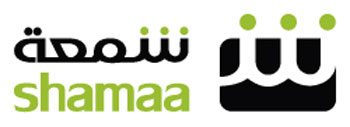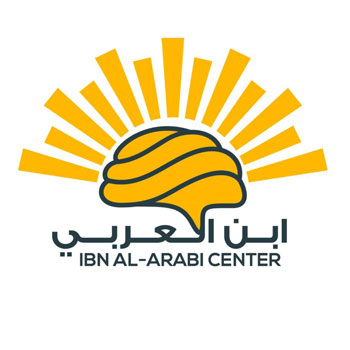أثر العلاقة بين مهارات التفكير النقدي و مهارات ريادة الأعمال لدى طلبة كلية التربية بجامعة التقنية والعلوم التطبيقية في سلطنة عمان
The impact of the relationship between critical thinking skills and entrepreneurship skills among students of the College of Education at the University of Technology and Applied Sciences in the Sultanate of Oman
DOI:
https://doi.org/10.56989/benkj.v4i11.1280الكلمات المفتاحية:
التفكير النقدي، التفكير الأبداعي، ريادة الأعمال، رواد الأعمال، ابدع في منتجكالملخص
هدف البحث للتعرف على أثر العلاقة بين مهارات التفكير النقدي على مهارات ريادة الأعمال لدى طلبة كلية التربية بجامعة التقنية والعلوم التطبيقية في سلطنة عمان، ولتحقيق أهداف البحث فقد تم الاعتماد على المنهج الوصفي التحليل الذي يستخدم برنامج التحليل الإحصائي spss، وتم استخدام الاستبانة كأداة للبحث، وتم تطبيقها على عينة البحث المكونة من 347 مفردة من أصل مجتمع الدراسة والبالغ عدده 1229 مفردة،
وتوصل البحث إلى مجموعة من النتائج أبرزها: هناك فروق ذات دلالة إحصائية في مهارات التفكير النقدي تعزى إلى (الذكور والإناث) من طلبة كلية التربية بجامعة التقنية والعلوم التطبيقية بسلطنة عمان لصالح الإناث؛ وهناك فروق إحصائية دالة بين الذكور والإناث في مهارات التفكير النقدي، لصالح الإناث في بعض الجوانب مثل "التفسير" و"تقييم الحجج"، حيث أظهرت الإناث مستويات أعلى في هذه المهارات مقارنة بالذكور؛ وأنَّ التدريب المنتظم يعزز من مهارات التفكير النقدي، حيث يصبح الطلبة أكثر قدرة على كشف المغالطات وتحليل الحجج بشكل دقيق، مما يفيدهم عند اتخاذ قرارات حاسمة في ريادة الأعمال.
وأوصى البحث بمجموعة من التوصيات، أبرزها: ضرورة تبني استراتيجيات تعليمية تدعم التفكير النقدي، مما يساعد الطلبة على تحليل المعلومات بشكل أعمق واتخاذ قرارات مدروسة؛ وضرورة تحسين مهارات التفكير النقدي لتلبية احتياجات سوق العمل، حيث يتطلب النجاح الوظيفي اليوم قدرة على حل المشكلات وإنتاج أفكار جديدة؛ وضرورة تدريب الطلاب على تطوير أفكارهم الخاصة ومشاريعهم الإبداعية بدلاً من التركيز فقط على الحفظ والتلقين، مما يعزز التفكير الريادي.
الكلمات المفتاحية: مهارات التفكير، مهارات التفكير النقدي، ريادة الأعمال، رواد الأعمال، مهارات ريادة الأعمال، طلبة كلية التربية، جامعة التقنية والعلوم التطبيقية، التعليم في سلطنة عمان
The aim of the research was to identify the impact of the relationship between critical thinking skills on entrepreneurship skills among students of the College of Education at the University of Technology and Applied Sciences in the Sultanate of Oman. To achieve the research objectives, the descriptive analytical approach was adopted, which uses the SPSS statistical analysis program. The questionnaire was used as a research tool, and it was applied to the research sample consisting of 347 individuals out of the study community, which numbered 1229 individuals. The research reached a set of results, the most prominent of which are: There are statistically significant differences in critical thinking skills attributed to (males and females) of students of the College of Education at the University of Technology and Applied Sciences in the Sultanate of Oman in favor of females; There are statistically significant differences between males and females in critical thinking skills, in favor of females in some aspects such as "interpretation" and "evaluating arguments", as females showed higher levels in these skills compared to males; and that regular training enhances critical thinking skills, as students become more able to detect fallacies and analyze arguments accurately, which benefits them when making critical decisions in entrepreneurship.
The research recommended a set of recommendations, most notably: the need to adopt educational strategies that support critical thinking, which helps students analyze information more deeply and make informed decisions; the need to improve critical thinking skills to meet the needs of the labor market, as today's career success requires the ability to solve problems and produce new ideas; and the need to train students to develop their own ideas and creative projects instead of focusing only on memorization and indoctrination, which enhances entrepreneurial thinking.
Keywords: Thinking skills, critical thinking skills, entrepreneurship, entrepreneurs, entrepreneurship skills, students of the College of Education, University of Technology and Applied Sciences, education in the Sultanate of Oman
المقاييس
المراجع
Abu Al-Ala, Hala Said Abdel-Aty. (2019). A proposed strategy based on the serious creativity theory to develop the habits of excellence and future entrepreneurial skills for home economics students in light of enhancing the competitive ability of quality education. Educational Journal of the Faculty of Education, Sohag University, 62 (62), 609-687.
Al-Maz, Mohamed Said Farag. (2022). Requirements for achieving entrepreneurship in Egyptian universities: An analytical study of the opinions of some experts. Journal of the Faculty of Education, 1 (4), 424-510.
Jassim, Arshad Abdul Amir. (2018). The role of entrepreneurship and entrepreneurial thinking in enhancing the quality of banking services: An exploratory study of a sample of private bank officials in Najaf Governorate, Iraq. Al-Furat Al-Awsat Technical University - Kufa Technical Institute, 2 (36), 1-32.
Hassan, Hana' Rajab. (2015). Teaching programs and methods of measuring it. Amman: Arab Community Library for Publishing and Distribution.
Salem, Hayam Mustafa Abdel Allah. (2017). A proposed vision to incorporate entrepreneurship into the arts curriculum to develop entrepreneurial thinking skills for producing a micro-enterprise project for home economics students. Journal of the Faculty of Education, University of Menoufia, 32 (4).
Saad, Sayed Mahmoud Ibrahim, and Hasanin, Manal Said Youssef. (2019). The expected role of universities in developing entrepreneurial skills. 26th Annual Scientific Conference: Development of Higher Education in the Arab World in the Era of High Technology and Competitiveness, Cairo: Egyptian Society for Comparative Education and Educational Administration.
Safiri, Norzaman Bint Ahmed. (2022). Application of higher-order thinking skills in the teaching and learning process of the Arabic language: A case study. Malaysia.
Abdullah, Ma'mouri. (2019). The effect of entrepreneurial thinking on improving service quality: A case study of Mobiles Bchar Company. Al-Bashaer Economic Journal, University of Taheri Mohamed, Bchar - Faculty of Economic Sciences, Commercial Sciences, and Management, 5 (2).
Flender, Sahla Hussein. (2022). Self-learning and its relationship to creative and critical thinking among students of the College of Education for Pure Sciences, Ibn Al-Haytham. Baghdad.
Al-Kurki, Wijdan Khalil, and Al-Mahadin, Sara Rady. (2019). The level of critical thinking among Mu'tah University students and its relationship to cognitive motivation. Jordan.
Al-Maqdadi, Ahmed; Khalaf, Malik. (2019). The level of critical thinking skills among students of King Abdullah II Faculty of Information Technology at the University of Jordan in light of the Crocodile Clips software. Jordan.
Al-Naifi, Turki Bin Khalid Bin Said; and Ibrahim, Hossam El-Din Said Mohamed. (2021). The experience of Oman in teaching entrepreneurship in schools as an entry point for supporting small industries in local communities. Journal of Architecture, Arts, and Humanities. 7th International Conference "Heritage, Tourism, and Arts Between Reality and Aspiration." Sultanate of Oman.
Lackeus, M. (2015). Entrepreneurship in education: What, why, when, how. Entrepreneurship 360. Background paper, available at: www.oecd.org/ (accessed 6 October 2017).
Al-Qatamin, A. A., & Esam, A. M. (2018). Effect of strategic thinking skills on dimensions of competitive advantage: Empirical evidence from Jordan. Economics, Management, and Marketing (MAC-EMM 2018), 8.
Asa, M. I., & Santosa, A. B. (2020). The learning management of creative product and entrepreneurship in vocational high school in frontier, outermost, and least developed regions in Alor Regency, East Nusa Tenggara Province. International Journal of Education Humanities and Social Science, 3(01).
التنزيلات
منشور
كيفية الاقتباس
إصدار
القسم
الرخصة
الحقوق الفكرية (c) 2024 مجلة ابن خلدون للدراسات والأبحاث

هذا العمل مرخص بموجب Creative Commons Attribution-NonCommercial 4.0 International License.































 ElDjawda Soft
ElDjawda Soft